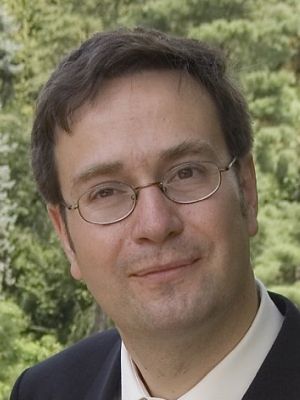Mgr. Hynek Bakštein, Ph.D.

Patent examiner, European Patent Office (EPO), Munich, Germany
Dissertation Thesis: Non-central Cameras for 3D Reconstruction, 2006
Programme: Electrical Engineering and Information Technology
Branch of study: Artificial Intelligence and Biocybernetics
Supervisor: prof. Ing. Václav Hlaváč, CSc.
Supervisor-specialist: Ing. Tomáš Pajdla, Ph.D.
Where do you currently work and what is the scope of your work?
I'm currently working as a patent examiner at the European Patent Office (EPO) in Munich. EPO is an international organisation with offices in Munich, The Hague, Berlin, and Vienna. EPO is an independent organisation, not part of EU structures and deals only with patents, not trademarks. Patents can be granted in every possible technical area and the work of an examiner is focused on searching for prior art most closely related to a given patent application and subsequently on deciding whether to grant or refuse a patent application based on the claimed invention and the found prior art. This decision phase involves negotiations with a patent attorney, which is based on a patent law (European Patent Convention - EPC) as well as on technical arguments given the technical features of the application and of the prior art. Altogether the work requires a mix of legal and technical skills as well as soft skills such as negotiation, persuasion, and critical thinking. The legal part has many different nuances, since EPO also deals with some national patent applications and also with a so called "world patent application" - PCT, each of these applications having a different legal framework. Although my job may seem to be quite remote from the creative scientific work, the tools used and the skills required for it are the same, albeit the nature of the job of a patent examiner is more "destructive" in essence. Something like the dark side of the force.
What has your doctoral studies given you for your current career?
The most important skills learned during my Ph.D. study were critical thinking, detailed analysis of problems, and ability to find the state of the art for a given problem and assess its relevance. And also to do it quickly. Another very important aspect was presentation of the results of my work both in a written form and also in person and in front of a (sometimes large, but always critical and attentive) audience. As a side note, passing an exam from two foregn languages was required during my study, which proved to be vital for my job application at the EPO, since there are three official languages and knowledge of at least two was a prerequisite (the third can be learned during internal language courses).
Where have you been during your doctoral studies and where have you been at postdoc?
Besides conference visits all around the world, I have spent several months at a Technical university in Ljubljana in a lab of prof. Leonardis. I've also had an opportunity to visit several leading labs in my field (computer vision and pattern recognition) and was lucky to meet (and also to work with) some of the smartest and brightest people in my field. After submitting and defending my thesis, I've worked as a postdoc in the Center for Machine Perception, FEE, CTU in Prague.